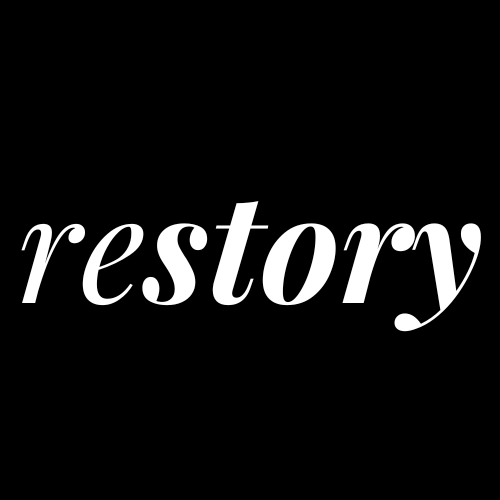I met Ted Dekker several years ago through writing circles. One of the things that stands out most to me was a statement he made as a speaker at the Mount Hermon Christian Writers Conference. Here he is signing a book for my friend Leslie at that conference.
The statement absolutely set me free as a novelist. He said, “The beauty of redemption shines brighter on a dark canvas.” In other words, we’re not doing anyone any favors by sanitizing the darkness. The more we share it stark on the page, the more the redemption can’t help but contrast and sparkle.
He’s written a new book, Water Walker, which explores this idea of bright redemption on the backdrop of a dark, pain-stained life. In addition to answering my nosy questions, he’s also agreed to share with you the first installment of the book FREE. Click here to download it.
And now, onto my questions, which center on something that has been a lifelong struggle: forgiveness.
Who has been the hardest person to forgive? What has helped you come to a place of peace about that relationship?
Those closest to us are always the most difficult to forgive—in my case, my parents. For many years I buried the pain that came from being abandoned by them at age six, when I found myself isolated in a boarding school for most of the year, completely lost. I cried myself to sleep for months, I am told, though I only remember the first few grueling nights. Now, decades later, I’ve radically changed my perception of my suffering as something beautiful—a power, however elusive, that we all have, beyond the minds and bodies that we mistake as our true selves. Water Walker delves into that process through the story of a girl who is kidnapped by her birth mother and finds herself in a difficult position, full of offense.
What compelled you to write this book?
I’ve always written to explore my beliefs and put them to the test in extreme ways. Fiction provides a safe way to do just that.

Sound offensive? And yet, I believe this is what Jesus meant when he spoke while being abused. Those beating him knew exactly what they were doing, yes? They were torturing him! And yet Jesus had the audacity to say, “Forgive them, for they know not what they do.” He saw the innocence of those abusing him and offered them love in return, following his own teaching to turn the other cheek when attacked by others and to offer love to them love instead. As such, his power was stunning.
And he asks us to do the same. The idea is deeply repulsive to our minds and impossible without KNOWING our Father’s love in a profound way. But once we do…The world changes.
This is “Water Walking.” Seeing no threat in the storms of life that, to the naked eye, are sure to down us. Peace…Be Still. You can walk over that sea of trouble, invulnerable. This is the journey.
Ted, what are the benefits of forgiveness?
Until we let go of our offense against any particular situation or person, we remain imprisoned. Often, we bury the pain as a means of coping, but the darkness lurks deep within us—ready to raise its ugly head when triggered. By letting go (forgiving) of that offense, we discover a staggering power full of life without grievance. We become invulnerable.
Jesus taught that we must love our enemies. That’s just as much of a radical notion today as it was then. If we’re honest with ourselves, we don’t really want to love those who wound and offend us. We find too much comfort and too much of our own identity in clinging to the offense, because it justifies the wounds that we use to define ourselves. But that old identity which thrives on pain is a lie. Our Father gives us a new identity, one where we are complete in him and have the ability to extend that grace to others.
This pertains to daily life, not only to abuse as we think of it. Letting go of the offense taken when a harsh word is spoken to you by a friend, for example. Letting go of the offense caused by a boss or a husband or by our peers in any situation, day by day. It’s perhaps the greatest gift given to us by our Father—perhaps this is why Jesus was so persistent in his teaching on the subject.
Why do you feel the mother/daughter relationship can be difficult?
[Laughs.] Well, I’m not a mother, but it’s deeply painful to be let down by the very person to whom we look for nourishment, or by a daughter who turns her back. All relationships produce pain when our expectations of that relationship are not met in one-way or another. We expect friends and lovers to act or be a certain way, and when they aren’t we are disappointed or hurt or wounded. Our journey is to let go of that pain by releasing the expectation that they be different and offering them affection and love instead, i.e.. “Forgive them for they know not what they do.” Try it and feel your spirit immediately lift… Until you once again find the offense and cling to it. Then you suffer once again.
So why do we keep clinging to offense in relationships? Because we think they define us—that we need them to make us complete. They are gifts, not dependencies.
So much pain in my own life has been rooted in the notion that I’m incomplete, but that is nothing more than a story I tell myself. The truth is that in my heavenly Father’s eyes I am whole, held safely by him who knows exactly what I need and when. This is true of you too, and the person sitting next to me on the airplane, and the person bagging your groceries. When we let go of our need to find wholeness through others, we become free.
Who is your hero of forgiveness?
Jesus. Hands down. He showed us the Way. And he had no advantage over us, truly. I quote from Hebrews 5:8: “Son though he was, he (Jesus) learned obedience from what he suffered.” We can as well, surely.
What does forgiving those who have hurt you have to do with living an uncaged life?
Forgiveness and freedom are really one and the same. Walking in forgiveness, seeing no offense, and loving without condition, is freedom. What seems difficult about forgiveness is that we forget how to forgive and so live in chains. It’s human nature, and in that way life is an endless cycle of forgetting and remembering. But as we learn to let go and die to ourselves we soar. It’s radical. It’s profound. It’s absolutely liberating.
It’s how we become Water Walkers like the first Water Walker whom we follow.
…
I’m so grateful for Ted’s words here. I’ll be chewing on them, I’m sure, for weeks to come. If this intrigues you too, be sure to download the first part of the book free here.


0 Comments